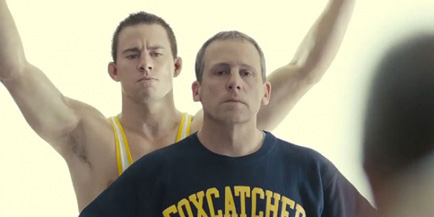|
|
The 400-Word Review: FoxcatcherBy Sean CollierDecember 23, 2014
The performances by Tatum and Carell — in both cases, the best of already-impressive careers — are perfectly in tune with the confusion and suspicion that lurk beyond the edges of the frame. Tatum carefully keeps a degree of distrust in Mark’s eyes, even as he is compelled closer to du Pont. Carell, finally given a large platform to display his talents outside of comedy, has created a haunting version of du Pont that answers few questions yet utterly grounds actions which may have had no motive at all. Miller works perfectly in tandem with co-writers E. Max Frye and Dan Futterman. Through a restrained script and a cautious camera, they create a film that maintains an air of mystery and building tension throughout its lengthy runtime — all the more impressive when one considers that this is not a story that offers a logical progression. To take a tale such as this and weave it into a poetic and heartbreaking feature would’ve vexed ordinary filmmakers. As we’ve seen in his two previous features, however, Miller is no ordinary filmmaker. My Rating: 10/10 Sean Collier is the Associate Editor of Pittsburgh Magazine and a member of the Broadcast Film Critics Association. Read more from Sean at pittsburghmagazine.com/afterdark
[ Read more 400 word movie reviews ]
[ View other movie reviews ]
[ View other columns by Sean Collier ] [ Email this column ]
|

|
|
|

|
Thursday, October 31, 2024
© 2024 Box Office Prophets, a division of One Of Us, Inc.


